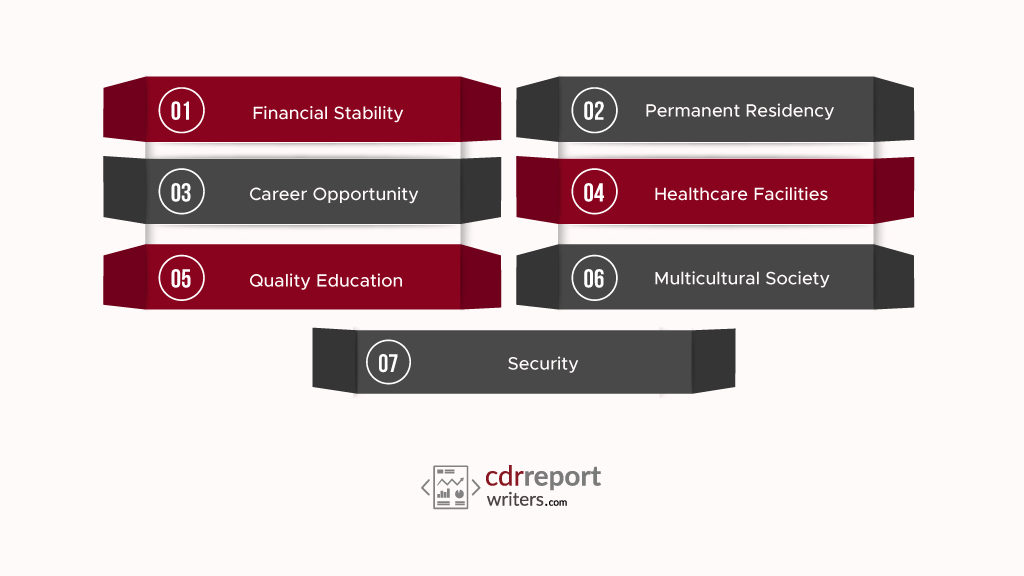
Is it Worth it for ICT Professionals to Migrate to Australia?
In today’s globalized world, professionals in the Information and Communication Technology (ICT) field have numerous opportunities to explore career prospects abroad. One destination that often comes up for ICT professionals to migrate to is Australia.
Australia has become an appealing choice for many with its robust ICT industry, attractive job market, and high living standards. However, before deciding to migrate, it’s essential to consider various factors to determine if it’s genuinely worth it.
Australia boasts a thriving ICT industry with a growing demand for skilled professionals. The Australian and New Zealand Standard Classification of Occupations (ANZSCO) provides a comprehensive list of ICT professions in high order, from computer network and systems engineers to ICT security specialists.
As an ICT professional, you’ll find plenty of job opportunities in Australia, with the country’s growing technology sector and focus on innovation and STEM education. From cutting-edge startups to established multinational corporations, there’s no shortage of exciting companies to work for in Australia’s thriving ICT industry.
But it’s not just about work – Australia is also a great place to live and play. With its stunning natural beauty, world-class beaches, and vibrant cities, there’s always something to see and do. This blog post will delve into the potential advantages and challenges faced by ICT professionals considering a move to Australia.
Pathways to Australia
Australia offers several visa options for skilled ICT professionals looking to migrate. The skilled migration pathway, particularly the Permanent Resident (PR) visa, is widespread. To be eligible for a PR visa, ICT professionals must meet specific skill and English language requirements and obtain a positive skill assessment from a designated authority.
The assessment process evaluates an applicant’s qualifications and work experience to ensure they meet the standards set by the Australian government. Of course, migrating to a new country is never easy, and there are challenges involved in moving to Australia.
But with its generous immigration policies, strong support networks, and friendly people, Australia makes the process as smooth and stress-free as possible. The Australian Computer Society (ACS) accesses the skills of IT and ICT professionals wanting to migrate to Australia.
Your academic or work experience must get related to the ICT vocation listed under various types of skilled occupation lists to migrate, work, and eventually become an Australian permanent resident. So why wait? If you’re an ICT professional looking for a new challenge and a new chapter in your life, Australia is waiting for you.
Start planning your migration today, and prepare for an adventure!
Medium and Long-term Strategic Skills List (MLTSSL)
Professionals who fall under the medium- and long-term strategic skills list are eligible for a longer-term temporary visa with pathways to PR via state sponsorship, employer sponsorship, or skilled independence. Following is the medium and long-term strategic list for ICT professionals:
- Analyst programmer – 261311
- Software and applications programmers (NEC) – 261399
- Software engineers – 261313
- ICT security specialist – 262112
- System analyst – 261112
- Developer programmer – 261312
- ICT business analyst – 261111
- Multimedia Specialist – 261211
- Computer network and systems engineer – 263111
Short-term Skilled Occupation List (STSOL)
Professionals who fall under the short-term skilled occupation list are eligible for a short-term temporary visa with pathways to PR via state sponsorship, employer sponsorship, or qualified independence. However, short-term skilled occupations may only be eligible for a short visa, and permanent residency is only sometimes possible.
Following is the short-term skilled occupation list for ICT professionals:
- Developer programmer – 261312
- Software and applications programmers (NEC) – 261399
- Analyst programmer – 261311
- Software engineers – 261313
- System analyst – 261112
- Computer network and systems engineer – 263111
- ICT business analyst – 261111
- Multimedia Specialist – 261211
- ICT security specialist – 262112
Must Read: Everything you need to Know about the Migration Skills Assessment ✍️✍️
Medium and Long-term Strategic Skills List (MLTSSL)
The Department of Education and Training (DET) and the Department of Home Affairs published the Medium and Long-Term Strategic Skills List (MTLSSL), which comprises a list of skilled occupations. The Short-term Skilled Occupation List (STSOL) and the Regional Occupation List get supplemented by this list.
Following is the Medium and Long-term Strategic Skills List (MLTSSL) for ICT professionals:
- Network Administrator – 263112
- ICT customer support officer – 313112 (TRA)
- ICT support and test engineers (NEC) – 263299
- Network analyst – 263113
- ICT support engineer – 26212
- ICT support technicians (NEC) – 313199 (TRA)
- ICT systems test engineer – 263213
- Web developer – 261212
- Software tester – 261314
- ICT project manager – 135112
- Web Administrator – 313113
- ICT trainer – 223211
- Database administrator – 262111
- ICT Quality assurance engineer – 263211
- Systems Administrator – 262113
- ICT managers (NEC) – 135199
The Australian Computer Society (ACS) assesses many of the jobs as mentioned earlier, except for two – ICT customer service officers and ICT support technicians (NEC), which get evaluated by Trades Recognition Australia (TRA).
Advantages of Migrating to Australia for ICT Professionals
Below are some advantages of migrating to Australia for ICT professionals:

1. Financial Stability
Every year, people relocate to Australia for a better income due to the higher cost of living. Australia’s economy has been continuously peaking for the last ten to fifteen years. It helps you to reach financial independence and stability.
Significant cities like Melbourne, Sydney, and Brisbane offer ICT professionals a wide range of job opportunities. Whether you’re a web developer, ICT support engineer, or involved in ICT support and testing, these cities are home to numerous organizations, ranging from startups to multinational corporations, seeking skilled ICT professionals.
2. Permanent Residency
One can apply for permanent residency after meeting particular prerequisites. They get amenities equivalent to those offered to Australian citizens, including health benefits. Children born in Australia can get PR even if their parents do not have PR.
3. Career Opportunity
As the economy increases, so does the number of people working in the industry. Companies are giving a variety of job possibilities to qualified migrants in response to rising demand.
With its well-balanced work-life balance, Australia provides a fresh opportunity for people to discover themselves. High-paying occupations and a scarcity of competent employees to fill open positions make Australia the ideal alternative.
4. Healthcare Facilities
Medicare is a program run by the Australian government that offers free health care. It is a cost-effective and efficient method of covering essential primary health care for all Australians and private healthcare institutions. Visitors can use Medicare in several nations if they have a reciprocal arrangement.
5. Quality Education
Australia offers a unique education system that is recognized worldwide. For the sake of quality education, there are several reputable universities. The Australian government provides free education to elementary and secondary school students.
6. Multicultural Society
Australia has a distinct culture that draws people from all over the world. Almost half of the population comprises people from all over the world. Immigrants and Australia’s vast cultural variety are two crucial factors.
7. Security
It is considered the safest location to reside due to low crime rates compared to other countries. It is easy to live in Australia because of its compassionate spirit.
To move to Australia, however, you must show that you have the necessary ICT skills similar to those acquired in Australia.
You’ll need to apply for Skill Assessment with the Australian Computer Society for this. RPL (Recognition of Prior Learning) evaluates your abilities for skilled Australian migration.
Learn More: Become an Australian Permanent Resident ✈️✈️
Cons of Migrating to Australia as an ICT Professional
Below are some cons of migrating to Australia as an ICT Professional:
1. High Cost of Living
While Australia’s high standard of living is a definite advantage, it can also come at a cost. The country has a high cost of living, specifically in major cities such as Sydney and Melbourne. Housing, food, and other necessities can be expensive, making it difficult for some ICT professionals to make ends meet.
2. Competitive Job Market
While the demand for skilled ICT professionals is high in Australia, so is the job competition. The country has a large pool of talented workers, and employers can afford to be picky when hiring. This complication can make it challenging for some professionals to find work, mainly if they are new to the country.
3. Cultural Adjustment
Shifting to a new country can be a problematic experience, mainly if the culture and customs are very different from your own. ICT professionals who migrate to Australia may experience culture shock as they adjust to the local way of life.
4. Visa Requirements
While Australia’s immigration policies are relatively generous, they can also be complex and time-consuming. ICT professionals may need to navigate various visa requirements and paperwork, which can be daunting and stressful.
5. Distance from Home
Australia is far from many parts of the world, and ICT professionals who migrate to the country may find themselves far away from family and friends. It can be difficult for some people, mainly if they are not used to being so far from home.
Read More: Give your CPD report a boost to pave the way for an excellent CDR report ✈️✈️
Is it Worth it for ICT Professionals to Migrate to Australia?
Ultimately, the decision to migrate to Australia as an ICT professional will depend on various factors, including your circumstances, career goals, and willingness to adapt to a new culture and way of life.
Australia may be an attractive destination if you are looking for a stable and growing economy, a high standard of living, and an excellent education system. The country offers a range of programs and incentives designed to attract skilled workers, and many job opportunities are available for ICT professionals.
However, it’s important to remember that the cost of living in Australia can be high, particularly in major cities. Additionally, the job market can be arduous, and some professionals may need help to secure work, mainly if they are new to the country.
It’s also essential to be realistic about the challenges of adapting to a new culture and way of life. Australia is a multicultural society, but significant differences exist between the country and many other parts of the world. Prospective migrants should get prepared to be patient and adaptable as they adjust to their new surroundings.
As an ICT professional, you may be eligible for Australian Permanent Resident (PR) Visas or Temporary Resident(TR) Visas with the possibility of becoming a Permanent Resident. While there are numerous advantages to migrating to Australia as an ICT professional, there are also challenges to consider.
The competition for skilled ICT roles can be intense, and professionals may need to adapt their skills and get updated with all the latest industry trends to remain competitive. Additionally, some professionals may need help obtaining the necessary skill assessments, meeting language requirements, or adapting to new work culture and environment.
For this, your occupation has to be related to information and communication technology (ICT) and also listed on the Consolidated Sponsored Occupation List (CSOL) or the Skilled Occupation List (SOL).
ACS RPL Skill Assessment for ICT Professionals to Migrate to Australia
On behalf of the Department of Australian Home Affairs, the Australian Computer Society is responsible for conducting your skills assessment. ACS will analyze your ICT knowledge and abilities based on your identified occupation.
Applicants who need more ICT experience must complete the RPL process. An RPL report should also include an employment reference letter. Your employment reference letter should offer specific details about your academic credentials.
Your work experience should be professional, demonstrating your qualities and potential to get a positive migration skills assessment. Keep the following points in mind while you write your RPL report. If you don’t, your application will get rejected by ACS.
- Your report must be unique and unpublished. If your RPL report gets found to get plagiarized, it will get dismissed. Modern plagiarism detection techniques, such as Turnitin, are used by ACS to ensure that no plagiarism occurs.
- You must demonstrate your professional experience in the actual world. Working in a real-world environment provided you with valuable experience. If you include false information, expect it to get rejected.
- Your job duties and responsibilities must match the ANZSCO occupation you applied for.
- It will assist if you give credit to people whose ideas, examples, and diagrams you used in your report.
- Even if you write in your own words, check for plagiarism because you may have unintentional plagiarism.
- You’ll have a greater chance of passing your ACS skill assessment if you follow these rules.
Learn More: Skilled Employer Sponsored Regional Visa (Subclass 494) 📖📖
Conclusion
Deciding whether it’s worth it for ICT professionals to migrate to Australia requires careful consideration of several factors. The country’s booming ICT industry, job opportunities, attractive living standards, and work-life balance make it an enticing option for many professionals.
However, being aware of the challenges and requirements involved is crucial, including obtaining skill assessments, meeting language criteria, and adapting to a new work environment. Ultimately, individuals must weigh the potential benefits against the challenges to make an informed decision about pursuing a career in Australia as an ICT professional.
We can help you with the ACS RPL report professionally. For the best-written ACS RPL report, contact our experts and professionals at CDRReportWriters. In addition, our experts are accessible to help you 24 hours a day, seven days a week.
We provide the best RPL report writing and RPL reviewing services for ICT specialists. So please don’t put it off any longer; join us in achieving your dreams of migrating to Australia.





